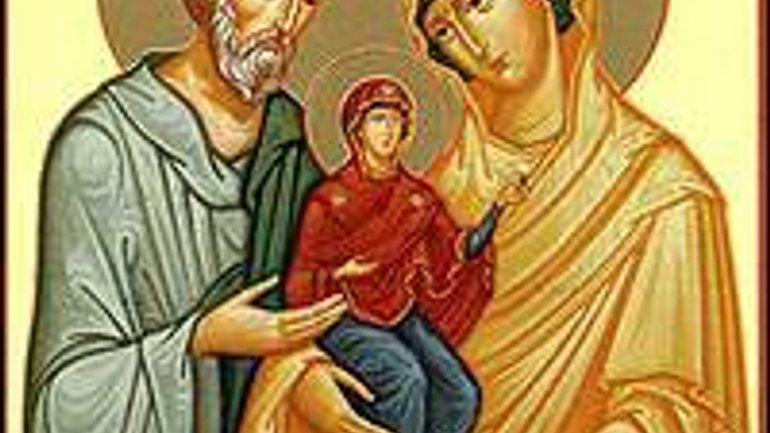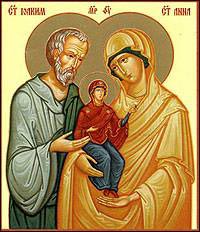Orthodox and greek catholics celebrate feast of the Conception of the mother of God

 The old and deep cult of the Most Holy Mother of God, which is a significant landmark of the Eastern Church, is reflected in the large number of feasts dedicated to the Mother of God in the Church Calendar. The feasts tell about the most important moments of the life of the Mother of God beginning with her miraculous conception and ending with her assumption.
The old and deep cult of the Most Holy Mother of God, which is a significant landmark of the Eastern Church, is reflected in the large number of feasts dedicated to the Mother of God in the Church Calendar. The feasts tell about the most important moments of the life of the Mother of God beginning with her miraculous conception and ending with her assumption.
Fr. Yulian Katrii of the Order of St. Basil the Great writes in his book "Know Your Rite" that the Gospel does not tell us much about the life of the Most Holy Virgin Mary, therefore, most of the feasts dedicated to her are not based on the events described in the Gospel but rather on the Christian tradition and stories of apocrypha of the first centuries. These feasts include also the Conception of St. Anne, which is celebrated in the Orthodox and Greek Catholic Churches on December 22 (December 8 according to the old style).
The conception of Mary is closely connected with Her mission to become the Mother of Christ. She was to bring into the world the Son of God; therefore, God sanctified the Most Holy Virgin from the dawn of her life by giving her the privilege to be free from the original sin. The main theme of the Divine Service of the feast is the miraculous event of the conception of the Most Holy Virgin by St. Anne.
The feast of the Conception has different histories in the East and West. In the West, it underwent a big evolution. The East concentrates on the very miraculous fact of conception by old and barren parents whereas the West began to stress the attribute of the conception. Later, the doctrine of the immaculate conception of the Mother of God was developed. According to it, the Most Holy Virgin Mary was preserved from the original sin from the first minute of Her life. The doctrine was most fully developed under Pope Pius IX (1846-1878), who by his bulla of December 8, 1854, declared the Immaculate Conception a dogma of the faith.
The Eastern Orthodox Churches do not accept the dogma of the Immaculate Conception. After the proclamation of the dogma, the Ukrainian Greek Catholic Church began to call the feast of the conception of the Mother of God by St. Anne the Feast of Immaculate Conception of the Most Holy Mother of God. The Lviv Synod of 1891 lists the feast as one of the deiparous ones and envisages celebrating it as one of the great deiparous feasts.









